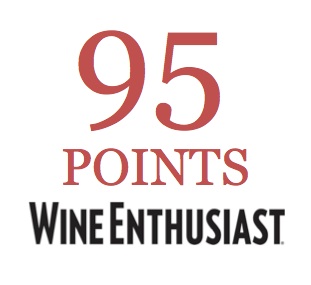Telling The Truth About Wine Scores and Wine Preferences
 Wine scores (you know, 93, *****, 18/20) are a very good thing for wine drinkers. I’ve made this case for ages. Recently, Matt Kettmann of the Wine Enthusiast Magazine made the same case in an article appropriately titled “Yes, Wine Score Still Matter”.
Wine scores (you know, 93, *****, 18/20) are a very good thing for wine drinkers. I’ve made this case for ages. Recently, Matt Kettmann of the Wine Enthusiast Magazine made the same case in an article appropriately titled “Yes, Wine Score Still Matter”.
While I think Matt gave up too much ground to the anti-scores brigade in a title that pays homage to those who try to make the case that wine scores don’t or shouldn’t matter, he did make a point that I also have made in the past, but bears exploration. But first I want to acknowledge the primary case Matt makes concerning the utility of wine scores. He lays it out simply:
“Now, when some sommeliers, winemakers and journalists bash the practice of scoring wines as an outdated, useless exercise, all I ultimately hear are arguments for less information. In an era where strategic misinformation and media-silencing campaigns infect the entire globe, I can’t see how anyone who values knowledge can argue that any form of legitimate information should be stopped. That includes… critic’s thoughts about and score for a particular bottle of wine.”
Matt is right. He’s absolutely right. The score is one more piece of information a consumer can use in addition to the written review that accompanies the score.
But here’s the point Matt makes that really got me thinking:
“Should it [the score] be the only metric [that is taken into account when buying a wine]? Hopefully not. Should  people learn about critics to know where they stand on certain styles? Hopefully so.”
people learn about critics to know where they stand on certain styles? Hopefully so.”
Now that’s really the thing, isn’t it? I mean, once you understand the palate of a reviewer, understand what they favor and what they look for in a great wine and what they think are important faults in a wine, it’s then that the score they give to a wine really does become valuable.
But how do you do that? The best way is to read that reviewer on a regular basis. Read and consume their written reviews. Make sure you especially read carefully many reviews of wines they consider not merely very good, but also mediocre. After a while, one should be able to discern what style of wine a given reviewer is prone to rate higher or lower. The classic example of this is Robert Parker, Jr. who came to be pigeon-holed, as Matt rightly puts it, “for preferring a ripe style of wine.”
But here’s the rub. That’s a lot of work and a lot of time. Having to read through numerous reviews from any given wine reviewer then, hopefully, tasting many of the wines that the reviewer has written about and scored takes a great deal of time and effort and, likely, expense. Wouldn’t it be much easier for the consumer if they could pull up a “Statement of Preference” from wine reviewers?
Wouldn’t this make things much easier? Wouldn’t a statement from a reviewer or wine critic describing which types of wine styles they prefer and why they prefer them give consumers and readers a nice shorthand for understanding where a wine critic is coming from without having to invest substantial time into trying to discern this information? Maybe something like this:
“My preference is for wines that exhibit a harmony of their constituent parts (fruit, tannin, acid, alcohol). I tend to prefer wines on the younger side for their more vibrant character. This almost always the case with younger white wines, with those rare exceptions of older white wines that develop more intensity over time but maintain their harmony and balance. I am particularly fond of richly structure syrah, delicate Pinot Noirs the more firmly structured red wines that balance exuberant fruit with earthy and herbal notes.”
If wine writers and critics offered this sort of declaration of preference somewhere for me to read it would save me a great deal of time trying to figure out where the critics “stand on certain styles”. Yet this is never done.
I suppose you could make the case that following a particular wine writer on their tasting journey and sussing out an understanding of their particular preference is part of the reader’s own journey and part of the fun. I wouldn’t be one of the people who make that case. It’s simply asking a great deal too much from the reader.
Be all this as it may, I’ll end by saying I stand with Matt. Yes, wine scores do still matter and they matter immensely. They are in fact one more piece of information for the consumers and a darned useful one at that.

Ouch, Tom. But I (mostly) agree that finding reviewers/critics with whom you agree is quite a good thing. However, there are plenty of us wine judges (most notably those of us who have succeeded in the MW or MS Exams and therefore hold the titles thereof), who can, and do, judge wines on the basis of their inherent merits, whether or not they are our ‘personal preferred styles.’ Believe me, please? No, I am not a particular fan of ‘Parker-points’, but I can recognise why the wines that receive massive scores receive massive scores, even if I would not choose to drink them, or at least not very often. But then I don’t always agree on ‘preference’ with very many wine critics or judges, although Jancis and Michael Schuster (UK-based Bordeaux, Burgundy and pretty much everything else expert) come close to my personal tastes. But personal tastes should not impact on the ability to judge wine’s quality. Training is critical, and regular blind tasting, of course.
Point. I’ve been saying this for a while, but the ultimate experience is to be able to understand your personal taste and get wine matches accordingly. This is why we applied data science using 200 wine traits and blind tasting to build consumer’s taste profiles. Wine critics scores help if you do your homework as you mentioned, but it’s time for a taste matching technology that works, fast tracking your own personalization process.
Your suggestion that wine critics regularly or at least annually outline their stylistic preferences is welcome, and if I am not mistaken Dan Berger used to do this on the yearly anniversary of his newsletter. I did it occasionally but perhaps not often enough. Scores are a handy shorthand to alert consumers to how highly a critic – or merchandiser, given that some people exploiting scores aren’t so much critics as sales people – thinks of a particular wine. Unfortunately, they have become so common and so inflated that they have lost relevance. Their biggest shortcoming may be the fallacy that some sort of scientific rigor and consistency went into their calculation. Thus, a more transparent explanation of a critic’s frame of reference, again, would be welcome.
I had been hoping that with their vast and growing data sets, companies like Delectable would take some minimum set of ratings from a user and then find another user as having similar taste. That way, a user could find someone they trust with the benefit of AI and perhaps even develop a digital relationship of sorts, beyond what you can get from a critic.